Zero Trust Security platforms
Updated: August 05, 2023
Zero Trust Security platforms are advanced cybersecurity solutions that challenge the traditional perimeter-based security approach by assuming that all devices, users, and networks are potentially untrustworthy. These specialized platforms enforce strict access controls and authentication measures to ensure that only verified and authorized users can access resources and data, regardless of their location or device. Zero Trust Security platforms continuously monitor and analyze user behavior and device posture to detect anomalies and potential security threats in real-time. By adopting a Zero Trust approach, organizations can significantly reduce the risk of data breaches and unauthorized access, enhance their overall security posture, and protect critical assets and sensitive data from sophisticated cyber threats. Zero Trust Security platforms play a crucial role in modern cybersecurity strategies, providing proactive and adaptive security measures to safeguard organizations' digital assets in an increasingly interconnected and dynamic digital landscape.
See also: Top 10 Cloud Security Software
See also: Top 10 Cloud Security Software
2021. TrueFort snares $30M to expand its zero trust application security solution
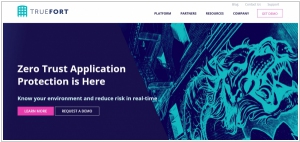
Enterprise application security startup TrueFort has successfully raised $30 million in Series B funding. TrueFort specializes in developing a zero trust solution that prioritizes safeguarding enterprise applications. The company's approach involves thoroughly analyzing each application to establish a baseline of normal behavior. Any deviations from this established norm are promptly identified and flagged. TrueFort accomplishes this by collecting data from trusted partners like CrowdStrike, as well as multiple data points within the application and infrastructure. Currently, customers have the flexibility to deploy the solution on-premises or in their preferred cloud environment. Additionally, the company is actively working on a SaaS solution, which is expected to be available within the next few months.
2021. Zero trust unicorn Illumio raises $225M
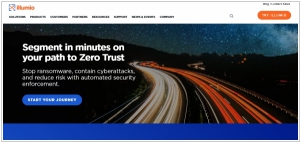
The self-proclaimed zero trust unicorn, Illumio, has recently concluded a successful $225 million Series F funding round. Illumio specializes in safeguarding data centers and cloud networks using a technique called microsegmentation. This approach simplifies the management of networks while enhancing protection against potential breaches, as well as containing breaches that may occur. Illumio asserts that this zero trust methodology, which revolves around the notion that businesses should not automatically trust anything within or outside their perimeters, has become increasingly crucial for organizations in today's landscape.
2021. Elisity raises $26M to scale its AI cybersecurity platform

Elisity, an innovative company specializing in behavior-based enterprise cybersecurity, has secured $26 million in Series A funding. The Elisity platform aims to assist organizations in transitioning from traditional access methods to a zero trust security model. Zero trust revolves around implementing stringent access controls and not inherently trusting anyone, including employees, throughout their entire digital presence. By adopting this approach, organizations can embrace a "work-from-anywhere" model. Unlike many companies that still rely on security measures tied to physical location or traditional networking constructs like VLAN, IP and MAC addresses, and VPNs, Elisity offers a modern solution that enhances cybersecurity for enterprises.
2021. Jamf snags zero trust security startup Wandera for $400M

Jamf, a prominent enterprise Apple device management company, has recently announced its acquisition of Wandera, a zero trust security startup, for a substantial $400 million. Jamf specializes in offering comprehensive management services for Apple devices, primarily catering to large organizations. As the market leader in this domain, Jamf recognizes the significance of incorporating a modern security layer into its platform. The integration of Wandera and Jamf will provide customers with a unified platform that encompasses deployment, application lifecycle management, policy enforcement, filtering, and robust security capabilities across all Apple devices. This collaboration will also enable zero trust network access for mobile workers, further enhancing the overall security framework offered by Jamf.
2021. Xage introduces Zero Trust remote access cloud solution for hard-to-secure environments
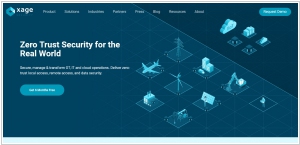
Xage, a security startup specializing in safeguarding critical and challenging operational environments, has unveiled a Zero Trust remote access cloud solution. This innovative approach involves granting access on a device-by-device and person-by-person basis, ensuring authentication and verification of identities. It eliminates the reliance on device or VPN passwords, taking security measures a step further with a secure traversal tunnel. This tunnel employs a tamper-proof certificate to prevent unauthorized access from the operations side (such as utility grids, water supplies, or oil and gas pipelines) to the IT side, thus mitigating potential risks to operational technology.
2021. BeyondID grabs $9M to help clients implement cloud identity
BeyondID, a cloud identity consulting firm, has secured a $9M Series A funding. The company specializes in assisting clients with security and identity management in the cloud, with a particular focus on Okta customers. BeyondID is a platinum partner for Okta and offers comprehensive solutions in various domains, such as identity and access management, secure app modernization, Zero Trust security, cloud migration, and integration services.
2021. Google’s BeyondCorp Enterprise security platform is now generally available
Google has made an announcement stating that BeyondCorp Enterprise, their zero trust security platform, is now available to the general public. BeyondCorp Enterprise is designed based on Google's own secure network practices, eliminating the need for a VPN. It expands on Google's existing BeyondCorp Remote Access offering by incorporating enterprise-specific features. Google describes this platform as a "zero trust solution" that ensures secure access while integrating threat and data protection. With BeyondCorp Enterprise, businesses gain a comprehensive zero trust solution that encompasses various aspects such as DDoS protection, authentication resistant to phishing attacks, enhanced security features in the Chrome browser, and continuous authorization features that safeguard all user-resource interactions protected by BeyondCorp.
2020. Axis Security raises $32M to help companies stay secure while working from home
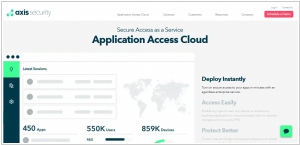
Axis Security, a provider of a secure Access-as-a-Service platform, has recently announced a $32 million Series B investment. Initially, Axis Security's focus was on assisting customers in securely enabling remote access for contractors and third parties to their systems. However, with the onset of the pandemic, they recognized an additional use case that aligned with their roadmap: enhancing system security while employees work from home. The company's product leverages the concept of Zero Trust, which operates on the assumption that no one on the system can be trusted, and builds security measures from that starting point. Using a rules-based engine, customers can create a secure environment tailored to individual roles within their organization.
2020. HPE acquires cloud native security startup Scytale
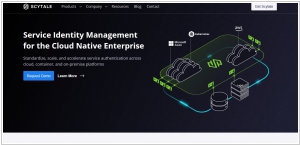
Hewlett Packard Enterprise (HPE) has completed the acquisition of Scytale, a cloud-native security startup that is based on the open-source Secure Production Identity Framework for Everyone (SPIFFE) protocol. Scytale specializes in application-to-application identity and access management, which has become increasingly crucial as more transactions occur between applications without human involvement. Ensuring secure information sharing between applications is essential. With HPE's focus on hybrid and multi-cloud environment management, the company aims to establish 100% secure and zero-trust systems capable of dynamically identifying and authenticating data and applications in real-time.



